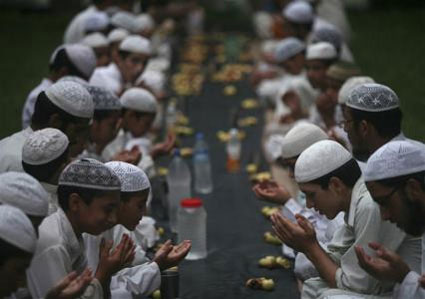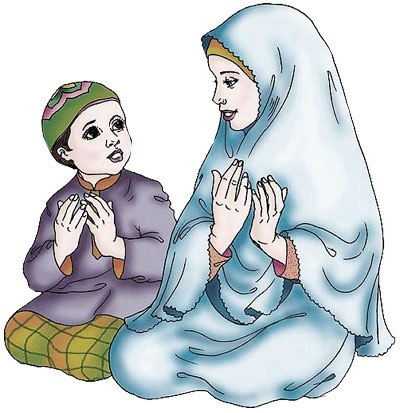Ramzan is a time for fast and abstinence among Muslims. Read on to know more about this practice. Ramzan is the ninth month as per the lunar calendar of Islam. It is a holy period for followers of Islam. This month is marked by abstaining from food, drink and sexual activity from dawn till dusk each day. Although fasting is carried out to enable a person to become closer to God, it also teaches self restraint as well as discipline. In this articleWhy Fasting is ImportantWhat it InvolvesPeople Exempt from FastingFasting Process Why Fasting is Important Islam has five pillars namely, declaring ones faith, daily prayers, doing charity, the pilgrimage to Mecca, and fasting. Fasting involves surrendering to the Lords commands and seeking his forgiveness for all the sins an individual has committed and the mistakes he has made. Fasting should be undertaken because of a persons love for God and a genuine desire to please him. It should be practiced honestly and with some measure of dedication. Only then will an individual achieve the spiritual elevation that is required to enter into communion with God. According to the prophet Muhammad, fasting is an obligation and failure to keep this obligation amounts to a lack of belief. Furthermore, under the Islamic or Shariah law, a person who willingly abstains from fasting without a proper reason has committed a grave sin against God. What it Involves Every healthy and able-bodied adult Muslim of sound mind is expected to fast during the month of Ramzan. This fasting period is from dawn (about an hour and a half before sunrise) to dusk (after the sun sets). Fasting should be done everyday for the duration of the entire month. People Exempt from Fasting Islam makes provisions for those who are unable to fast as well as exempts certain people from having to follow this ritual. A child who has not yet attained puberty is exempt from fasting. However, parents may choose to make their child fast for a certain number of hours each day in order to prepare him for a full days fasting later on. An individual who is insane is also exempt from fasting since such a person cannot be held accountable for his actions. A person who is elderly is not expected to fast, in deference to his age. However, he is expected to compensate for this by giving a poor or needy Muslim person one square meal. This must be done for each day of Ramzan. An individual who is ill and whose health will be severely affected if he fasts is also given some leeway during Ramzan. In return, he is expected to fast later when he is well. This fasting is only to make up for the days that he missed due to his illness. A woman who is pregnant or one who is lactating is also allowed a temporary exemption from fasting. A woman is also allowed a ten day grace period if she is menstruating. In all these cases, the days of fasting that were missed during Ramzan must be made up for later on. Fasting Process An individual is allowed to consume one small meal before the fasting period each day. This meal is referred to as suhoor and it acts as a blessing. It is not essential to follow this custom but it is recommended that a person does so. Consumption of all food and drink must cease at least five to ten minutes before dawn. An individual must declare his intention to fast on each day, before the actual commencement of the fast. This action is called as Niyyah, and is usually worded as I intend to fast today. If a person forgets to declare his intention to fast on a particular day, he is still allowed to do so as long as it is before noon. If no intention is declared by noon, then the fast for that day will be declared invalid. The act of ending a fast, after sunset, is termed as Iftar. Generally, a fast is broken by consuming a light snack consisting of dry fruits, and some liquid, preferably in the form of water, milk, or juice. Prior to breaking a fast, the following prayer is said to the Lord; "Oh Allah! I fasted for your sake and I am breaking my fast from the sustenance. You blessed me with, accept it from me." In exceptional cases, a person is allowed to break his fast such as when there is any danger to his health. However, he should make up for this lapse whenever he is able.
Ramzan is a time for fast and abstinence among Muslims. Read on to know more about this practice. Ramzan is the ninth month as per the lunar calendar of Islam. It is a holy period for followers of Islam. This month is marked by abstaining from food, drink and sexual activity from dawn till dusk each day. Although fasting is carried out to enable a person to become closer to God, it also teaches self restraint as well as discipline.
Why Fasting is Important
Islam has five pillars namely, declaring one's
faith, daily prayers, doing charity, the pilgrimage to Mecca, and fasting. Fasting involves surrendering to the Lord's commands and seeking his forgiveness for all the sins an individual has committed and the mistakes he has made.
Fasting should be undertaken because of a person's love for God and a genuine desire to please him. It should be practiced
honestly and with some measure of dedication. Only then will an individual achieve the spiritual elevation that is required to enter into communion with God. According to the prophet Muhammad, fasting is an obligation and failure to keep this obligation amounts to a lack of belief. Furthermore, under the Islamic or Shariah law, a person who willingly abstains from fasting without a proper reason has committed a grave sin against God.
What it Involves
Every healthy and able-bodied adult Muslim of sound mind is expected to
fast during the month of Ramzan. This fasting period is from dawn (about an hour and a half before sunrise) to dusk (after the sun sets). Fasting should be done everyday for the duration of the entire month.
People Exempt from Fasting
Islam makes provisions for those who are unable to fast as well as exempts certain people from having to follow this ritual. A child who has not yet attained puberty is exempt from fasting. However, parents may choose to make their child fast for a certain number of hours each day in order to prepare him for a full day's fasting later on. An individual who is insane is also exempt from fasting since such a person cannot be held accountable for his actions.
A person who is elderly is not expected to fast, in deference to his age. However, he is expected to compensate for this by giving a
poor or needy Muslim person one square meal. This must be done for each day of Ramzan. An individual who is ill and whose health will be severely affected if he fasts is also given some leeway during Ramzan. In return, he is expected to fast later when he is well. This fasting is only to make up for the days that he missed due to his illness.
A woman who is
pregnant or one who is lactating is also allowed a temporary exemption from fasting. A woman is also allowed a ten day grace period if she is menstruating. In all these cases, the days of fasting that were missed during Ramzan must be made up for later on.
Fasting Process
An individual is allowed to consume one small meal before the fasting period each day. This meal is referred to as 'suhoor' and it acts as a blessing. It is not essential to follow this custom but it is recommended that a person does so. Consumption of all food and drink must cease at least five to ten minutes before dawn.
An individual must declare his intention to fast on each day, before the actual commencement of the fast. This action is called as 'Niyyah', and is usually worded as 'I intend to fast today'. If a person forgets to declare his intention to fast on a particular day, he is still allowed to do so as long as it is before noon. If no intention is declared by noon, then the fast for that day will be declared invalid.
The act of ending a fast, after sunset, is termed as 'Iftar'. Generally, a fast is broken by consuming a light snack consisting of dry fruits, and some liquid, preferably in the form of water, milk, or juice. Prior to breaking a fast, the following prayer is said to the Lord; "Oh Allah! I fasted for your sake and I am breaking my fast from the sustenance. You blessed me with, accept it from me."
In exceptional cases, a person is allowed to break his fast such as when there is any danger to his health. However, he should make up for this lapse whenever he is able.

































